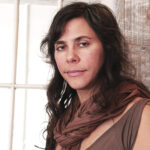On one of the final stops during its two-year, cross-country “Our Canada” workshop series, the Canadian Race Relations Foundation (CRRF) held an open conversation about faith and social inclusion in Montreal last month.
According to Thomas Gallezot, francophone communities and outreach project officer for the organization, the CRRF aims to promote diversity and social inclusion through community dialogue. The objective of the workshop is to improve the ability of participants to manage workplace and community situations arising “out of conflicting religious practices and cultural values.”
While still predominantly Christian (65.8 per cent), more Montrealers now affiliate with religions other than Christianity (Islam: 9.6 per cent, Judaism: 2.4 per cent, Hinduism: 1.4 per cent, Buddhism: 2 per cent) according to the 2011 Census.
As non-Christian religions have become more visible, debates about culture, faith and values have heated up in Quebec’s public sphere. The proposed 2013 Quebec Charter of Values was an attempt to draw lines in the sand about secularism.
Most recently, a Quebec Human Rights Commission survey on diversity showed that 45 per cent of respondents had a negative view of religion. Forty-three per cent said people should be suspicious of anyone who expresses their religion openly, and 48.9 per cent said they were bothered by women wearing a veil.
Obstacles to social inclusion
A multi-faith panel, including Imam Shaykh Omar Koné, Rabbi Reuben Joshua Poupko, Father Engelbert Fotsing, Reverend Wilner Cayo, and David-Roger Gagnon, former spiritual and community animator at the English Montreal School Board (EMSB) discussed whether faith is an obstacle to social inclusion during the workshop.
Networking at an after-work “5-à-7” (Happy Hour) is a common practice in Montreal, but “to go with work colleagues is problematic when you are practising Muslim who doesn’t drink.”
In the Muslim community, Koné said negotiating how to co-exist in a Judeo-Christian world is not always easy when your way of living is different than the majority. Networking at an after-work “5-à-7” (Happy Hour) is a common practice in Montreal, but “to go with work colleagues is problematic when you are practising Muslim who doesn’t drink,” he explained.
Optics is another challenge. “Employment, which is the first factor in integration, is problematic when we have a name that sounds Arab-Muslim,” Koné added.
Recent statistics back this up. Visible minorities make up 31 per cent of Montreal’s population, but they represent only 11 per cent of the City of Montreal’s workforce. The unemployment rate of North African immigrant women in Montreal is five times greater than women who are not visible minorities.
Poupko said recognizing different beliefs and believers is “vital to communal harmony.”
“Last year a young woman came to see me, a medical resident at the Royal Victoria Hospital. She’s Jewish, but she doesn’t look Jewish,” he shared.
The student told her supervisor that she was going to Jewish General Hospital on her medical rounds. Poupko said the supervisor responded, “I can’t stand those people, they are so aggressive.”
The next day, the student arrived at work wearing a large Star of David. The employer was left speechless.
“Anytime this [kind of thing] happens we’re still shocked by it,” said Poupko. “We all know this woman is going to be fine, she’s going to be a doctor … she’s going to have a prosperous, secure life … no police is going to pull her over … because she looks suspicious.”
He said the doctor’s comments don’t compare to the discrimination and violence other minorities face in Quebec and across Canada.
“[I]t’s not necessarily their religion or their culture that people sometimes react to, but is the fact that they are spiritual or religious at all.”
Gagnon wants people to understand, “that it’s not necessarily their religion or their culture that people sometimes react to, but is the fact that they are spiritual or religious at all.”
He says this has to do with Quebec’s particular history and break with the Catholic Church after the Quiet Revolution. That “left deep scars,” said Gagnon. Acknowledging this history “will help the dialogue,” he added.
Best practices
There was consensus among the panelists that schools are the best place to be pro-active.
Gagnon gave credit to Quebec’s Spiritual and Community Animation program in elementary and secondary schools. As a former spiritual and community animator at the EMSB, he said focusing on spirituality rather than religion provides “a window to talk about what we have in common.”
The program was introduced after Bill 118 (2000) deconfessionalized public school boards and introduced a mandate to promote diversity and pluralism.
“There’s always this push and pull,” said Poupko. “I think it has do with asking what’s reasonable and expecting a common sense response.”
That’s the approach Cristina Bajenaru takes as Project Coordinator at the Centre d’Encadrement pour Jeunes Femmes Immigrantes, a community organization that helps young immigrant women integrate.
Bajenaru said her clientele comes from 60 countries so she has to take a common sense approach to accommodation. If her training workshops coincide with Muslim holidays, she explained, “I can’t tell them to come, but I can’t tell them not to come either.” She said she lets them decide, and roughly half the class ends up staying home.
Through community consultations, the CRRF compiled dozens of other real scenarios that have come up in workplaces across the country. These are included in the Faith and Belonging Toolkit, a resource for workshop participants to encourage discussion and develop appropriate responses to accommodation.
Using the resource, Gagnon said he was impressed at the ability of the group to come up with solutions to complex scenarios.
“Spirituality in the public sphere, in [the] workplace, in society, when we talk about it reasonably and calmly, we find solutions,” he said.
Elvira Truglia is a Montreal-based journalist who writes about the intersections of culture, politics, and social issues. She has also worked in the community, media and cultural sector as well as national and international non-governmental organizations.





